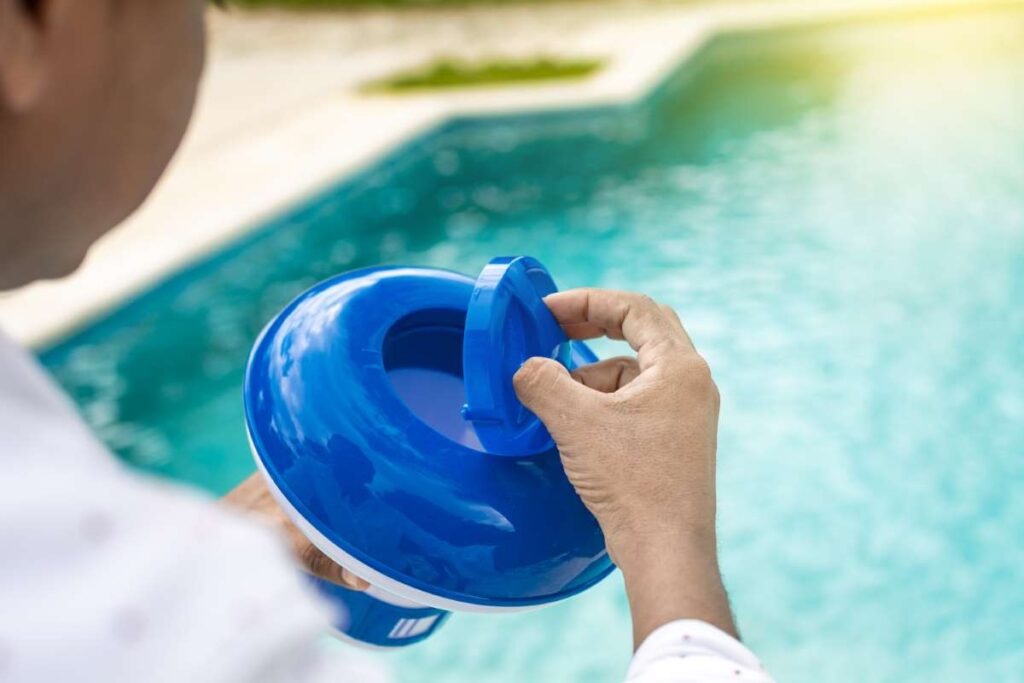Future-Proofing Your Business Against Extreme Weather Events
Discover how to future-proof your business against extreme weather events with practical strategies and insights tailored for sustainability and resilience.
As climate change continues to escalate, extreme weather events such as hurricanes, floods, wildfires, and droughts are becoming increasingly common. Businesses of all sizes must adapt to these new realities to ensure their longevity and resilience. This blog post will explore various strategies for future-proofing your business against extreme weather events, emphasizing the importance of preparation, risk assessment, and robust operational strategies. We will also delve into how the pool maintenance industry, particularly through services like those offered by Superior Pool Routes, can mitigate risks associated with these disruptions.
The Increasing Frequency of Extreme Weather Events
The past few decades have witnessed a dramatic increase in extreme weather events globally. According to the National Oceanic and Atmospheric Administration (NOAA), the number of natural disasters has risen significantly since the 1980s. Here are some key statistics to consider:- In the United States alone, the number of weather-related disasters has doubled since 1980.- The frequency of hurricanes has increased, with the Atlantic experiencing a 40% rise in hurricane activity since 1990.- Flooding now accounts for 44% of all natural disasters, making it the most common disaster type.These figures highlight the need for businesses to recognize the risks posed by extreme weather and take proactive steps to protect themselves. For example, businesses within industries prone to weather-related disruptions, like pool maintenance, can leverage strategic planning to ensure continuity of operations.
Understanding Risk Assessment
Risk assessment is a critical first step in future-proofing your business. It involves identifying potential hazards, evaluating the likelihood of these hazards occurring, and determining the potential impact on your operations. Here are some steps to conduct an effective risk assessment:1. Identify Risks: Analyze your geographical location and its vulnerability to specific extreme weather events. For instance, if your business operates in Florida, you may need to prepare for hurricanes and heavy rainfall.2. Evaluate Potential Impact: Assess how each identified risk could affect your operations, finances, and reputation. For example, a hurricane might disrupt your supply chain, leading to delayed service delivery.3. Determine Probability: Research historical data to estimate the likelihood of each risk occurring. This could involve studying past weather patterns and their impacts on similar businesses in your region.4. Prioritize Risks: Not all risks carry the same weight. Prioritize them based on their potential impact and likelihood to help focus your mitigation efforts effectively.Taking the pool maintenance industry as a case study, businesses can use tools like
pool routes for sale in Florida as a way to ensure they maintain operations by having multiple service routes that can adapt to weather disruptions.
Creating a Comprehensive Emergency Response Plan
Once you have assessed the risks, the next step is to develop a comprehensive emergency response plan. This plan should include:- Communication Protocols: Establish clear lines of communication among staff, customers, and suppliers during emergencies. This helps ensure everyone is informed about actions taken and services affected.- Operational Continuity Strategies: Identify which parts of your business can continue operating in the face of disruption. For instance, if your physical location becomes inaccessible, consider mobile service options or remote work setups.- Resource Allocation: Allocate necessary resources for disaster management, such as backup power supplies, emergency kits, and the training required to effectively execute your plan.- Regular Drills and Updates: Conduct regular training drills to ensure staff is familiar with emergency procedures. Additionally, review and update your plan periodically to accommodate changes in business operations, staff, or external factors.An excellent resource for training in emergency procedures is the extensive
Pool Routes Training provided by companies like Superior Pool Routes, ensuring that staff is well-prepared for any disruptions.
Investing in Infrastructure and Technology
Investing in robust infrastructure and technology can significantly enhance your business’s ability to withstand extreme weather events. Consider the following strategies:- Flood-Resilient Structures: If your business is in a flood-prone area, invest in flood-resistant construction techniques. Elevating buildings and using flood barriers can protect property and equipment.- Renewable Energy Sources: Solar panels and backup generators can provide alternative power sources during outages. This is particularly important for businesses in regions susceptible to hurricanes or storms.- Data Backup Systems: Ensure that all important business data is backed up regularly, preferably in secure, off-site locations. This protects your information from loss during disasters.- Advanced Analytics Tools: Utilize technology that allows for real-time monitoring of weather patterns and alerts. Being proactive can help you make informed decisions regarding business operations.For pool maintenance businesses, having reliable equipment and technology can help maintain service delivery even in adverse conditions, thereby ensuring customer satisfaction and retention.
Building Strong Relationships with Customers and the Community
In times of crisis, strong relationships can be invaluable. Here’s how to foster these connections:- Transparent Communication: Keep customers informed about how extreme weather may affect services. Providing timely updates helps build trust and loyalty.- Community Engagement: Engage with your local community by participating in initiatives that support disaster preparedness and recovery. This not only enhances your brand image but also strengthens community ties.- Customer Support Systems: Develop robust customer support systems that remain operational during emergencies. This could include online platforms or hotlines that keep communication open even during crises.Superior Pool Routes emphasizes the importance of community by providing
Pool Routes How It Works, ensuring that clients understand how to navigate challenges together.
Leveraging Insurance and Financial Strategies
Insurance can be a crucial element in mitigating financial loss during extreme weather events. Here’s how to optimize your insurance coverage:- Comprehensive Coverage: Ensure you have comprehensive insurance that covers not only property damage but also business interruption loss. This ensures that you are financially protected if you cannot operate temporarily.- Review Policies Regularly: Regularly review insurance policies to ensure they align with your current operational needs and risks. As your business grows or changes, your coverage requirements may evolve.- Financial Contingency Planning: Create a financial reserve to manage expenses during periods of disruption. This can help cover costs without jeopardizing your business’s financial health.Businesses like yours can benefit from the financial stability offered through careful planning. Companies like Superior Pool Routes provide structured, cost-effective solutions for aspiring entrepreneurs, ensuring they start on a solid financial footing.
Utilizing Training and Development Programs
Training your team is crucial in preparing for extreme weather events. Ensure your employees are well-equipped to handle emergencies by emphasizing the following:- Emergency Response Training: Provide training on specific emergency procedures relevant to your industry. This includes evacuation plans, first aid training, and response protocols to various disaster scenarios.- Regular Refresher Courses: Schedule regular refresher courses to keep emergency procedures fresh in employees’ minds. This also ensures that new hires are brought up to speed quickly.- Skill Development Workshops: Host workshops that enhance overall employee skills, including decision-making under pressure, communication, and teamwork during crises.The comprehensive training programs offered by Superior Pool Routes can be an excellent model for enhancing employee readiness and confidence in handling weather-related challenges.
Conclusion
In conclusion, the increasing frequency of extreme weather events necessitates that businesses take proactive steps to future-proof their operations. By conducting thorough risk assessments, creating emergency response plans, investing in infrastructure, and fostering strong community relationships, businesses can enhance their resilience against natural disasters. Moreover, leveraging training programs and financial strategies can further bolster preparedness, ensuring that businesses can weather any storm. As the pool maintenance industry continues to grow, companies like Superior Pool Routes provide invaluable resources and support to help entrepreneurs and established businesses navigate these challenges effectively.Don’t wait for the next weather event to take action. Start implementing these strategies today to secure your business’s future against the unpredictable nature of climate change.



